
In the late 1970s, before he would go on to be hired by Marvel Comics as an assistant editor, Mark Gruenwald published two issues of his fanzine OMNIVERSE. Unlike most other fan publications, OMNIVERSE was dedicated to examining a single principle when it came to comic book fiction: the consistency of continuity across fictional realities, including the impact of parallel worlds, alternate timelines and the like. It was all stuff that fascinated Mark, and that became a backbone of his eventual work at Marvel, both as a writer and as the editor of the Official Handbook of the Marvel Universe. His premise was that all fictional realities existed in parallel to one another in a grand Omniverse. So OMNIVERSE was intended as something more akin to a scientific journal than the typical fanzine of the age, and it was aimed at a very specific sort of fan–the kind of fan who would worry about where Bob Haney’s assorted BRAVE AND THE BOLD stories fit into the DC cosmology as laid out in Julie Schwartz’s titles.
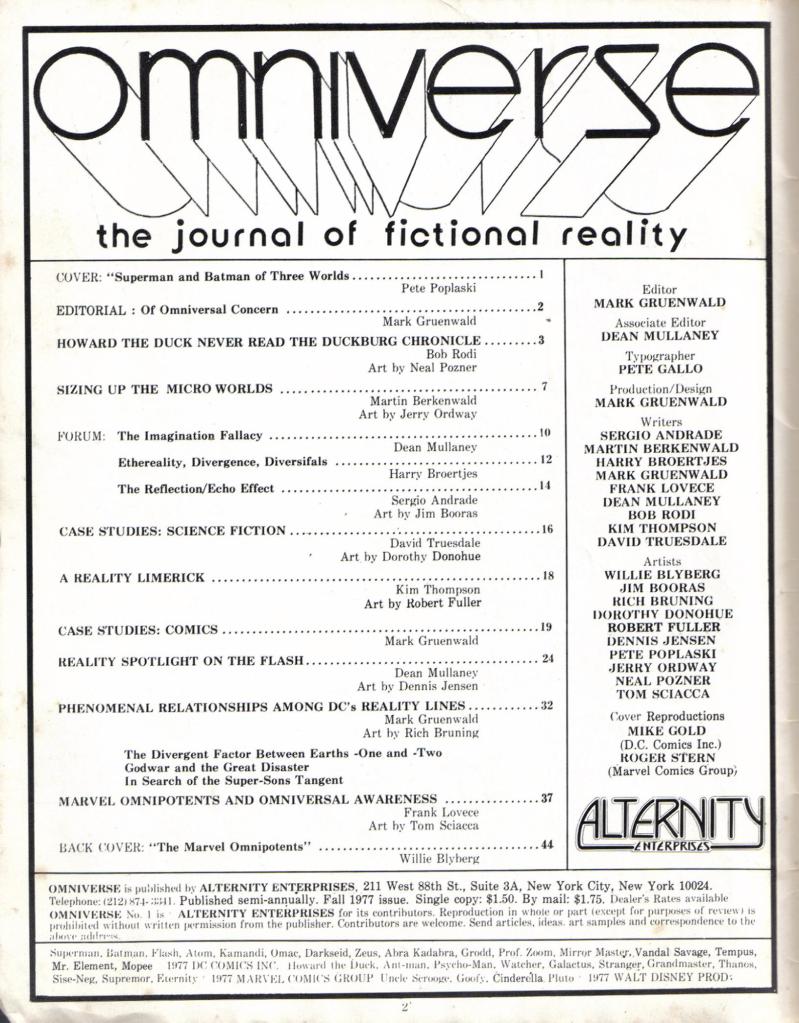
OMNIVERSE was co-published by Mark’s friend Dean Mullaney, who would go on to found Eclipse Publishing.
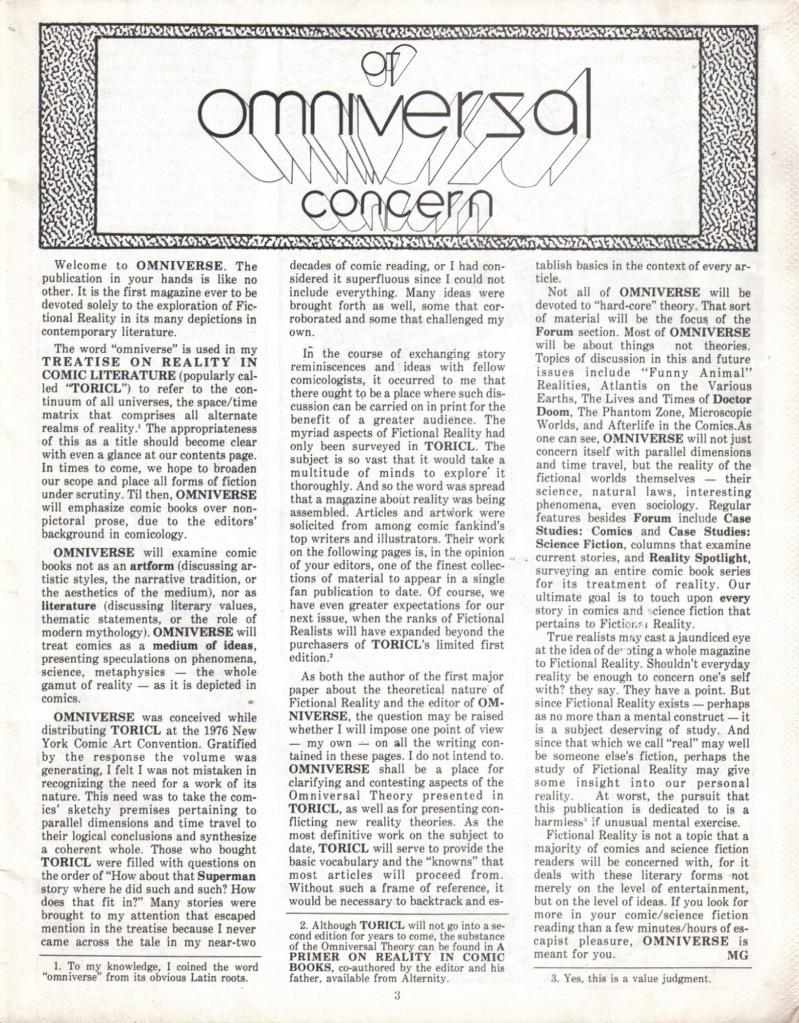
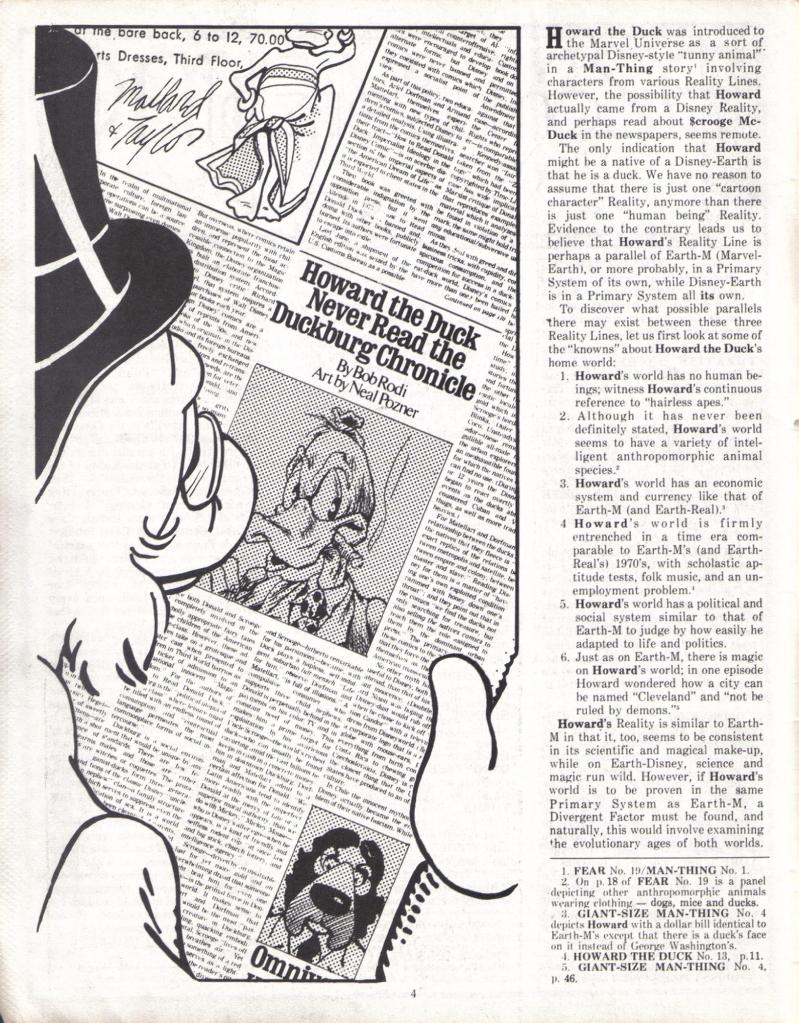
First up after Gruenwald’s initial introductory remarks is fan writer Bob Rodi, who pens a long analysis on whether or not Howard the Duck may originate from the same universe that houses Uncle Scrooge an Donald Duck. This was pretty clearly creator Steve Gerber’s intent when the character was first introduced but over time Howard had shifted from that premise, mostly for self-preservation.



After this, Martin Berkenwald analyzes the assorted micro-realms put forward by Marvel and DC and others, to see how well their fictional reality holds up to scrutiny.
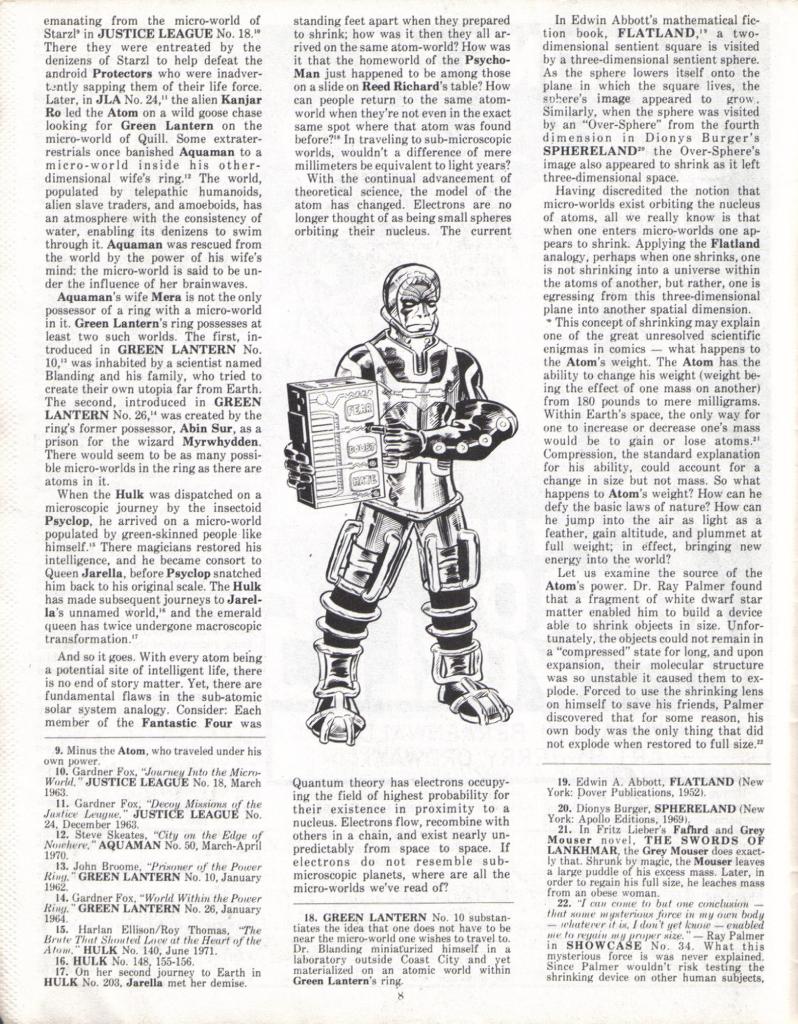
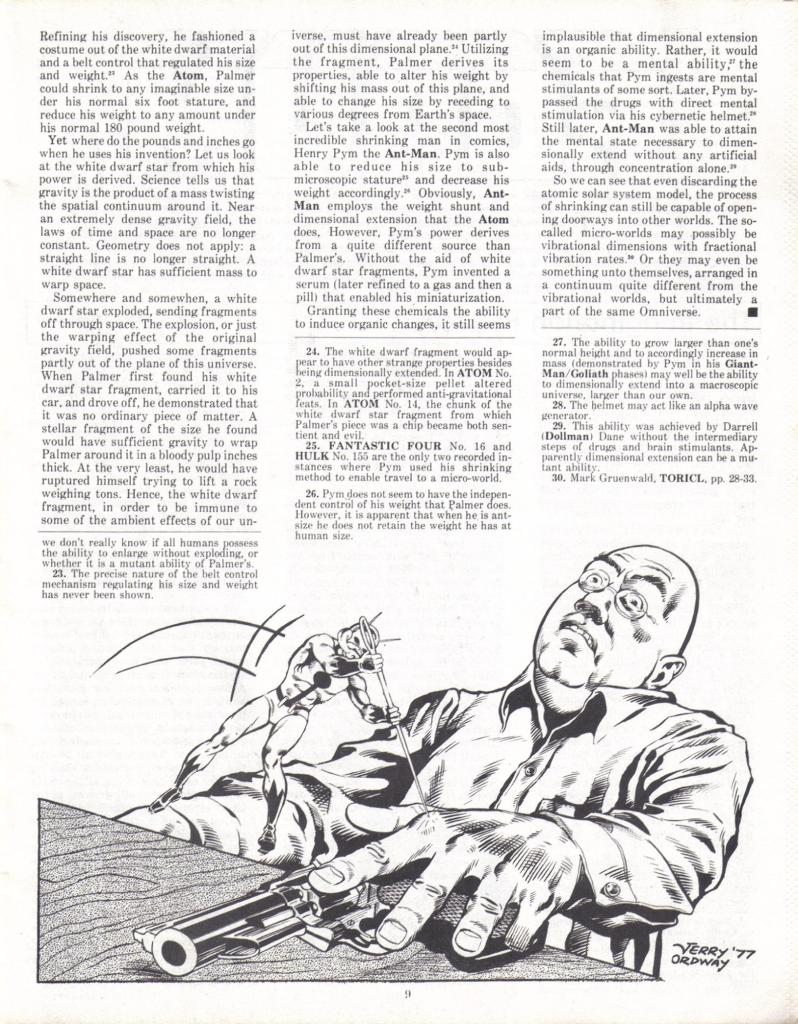
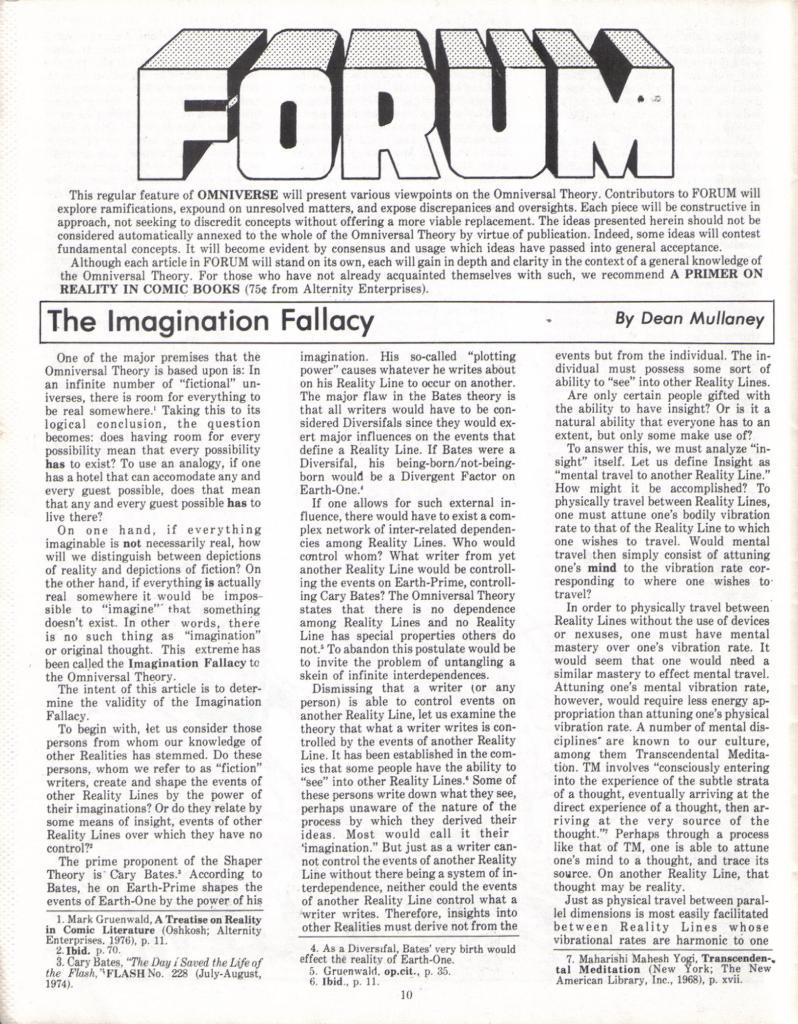
After that comes a quasi-letters page in which various contributors speak about aspects of the underlying reality of the stories they’ve been consuming that interests them.
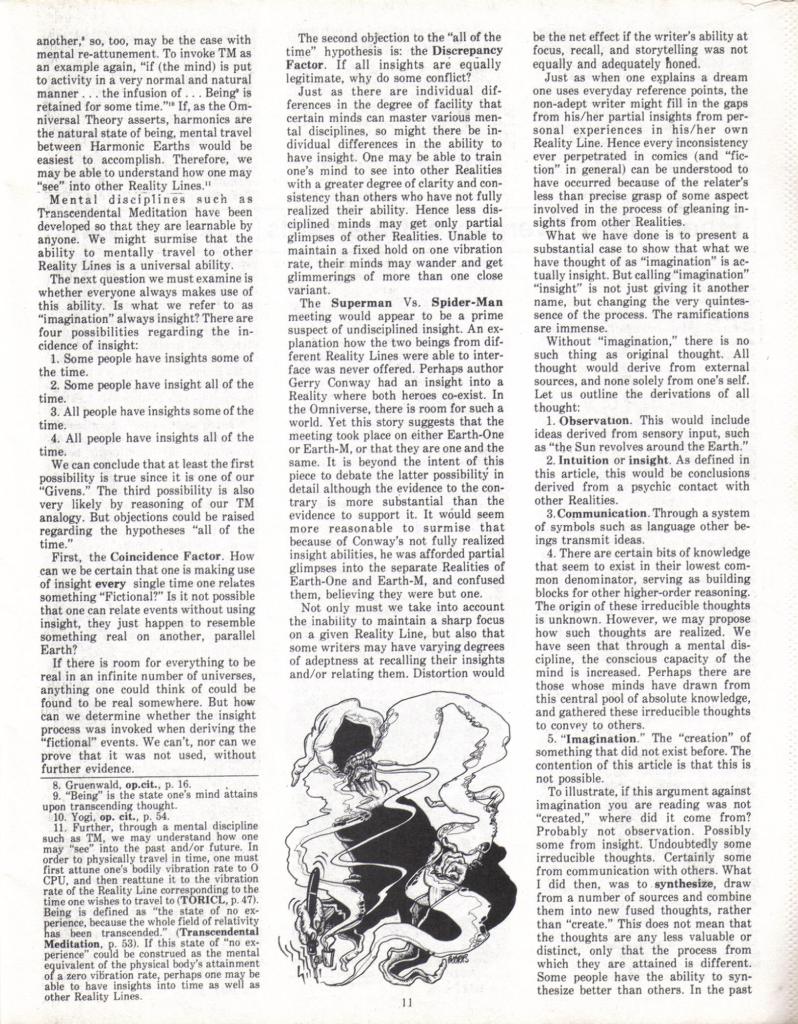
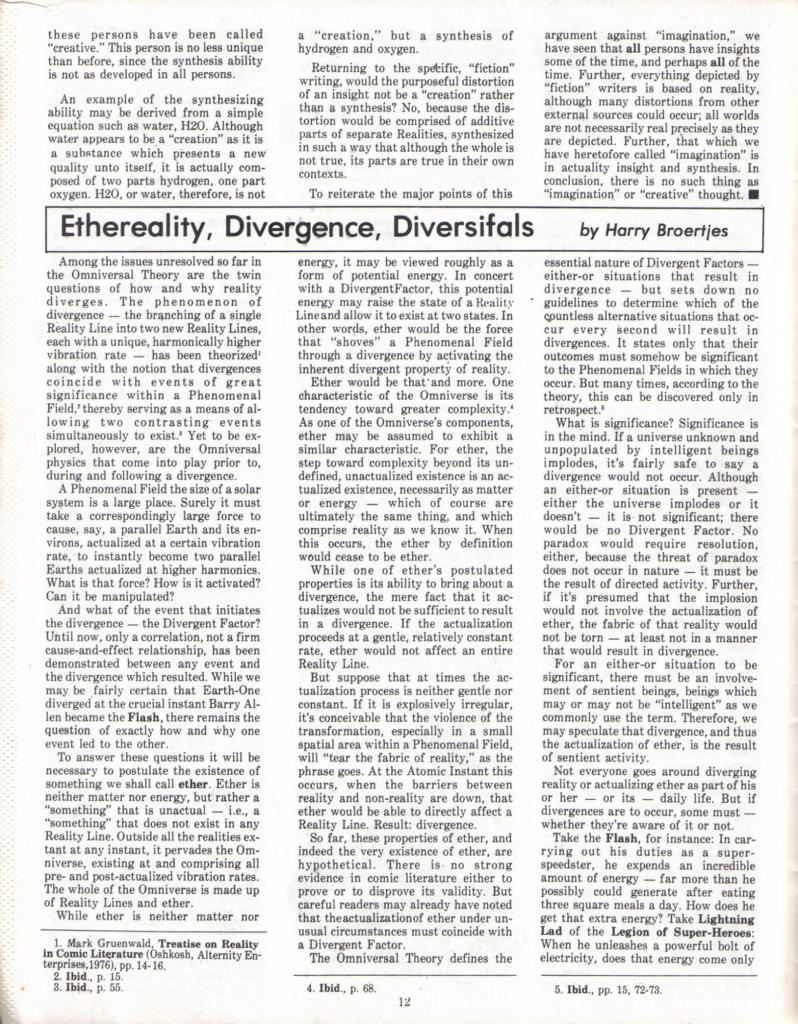
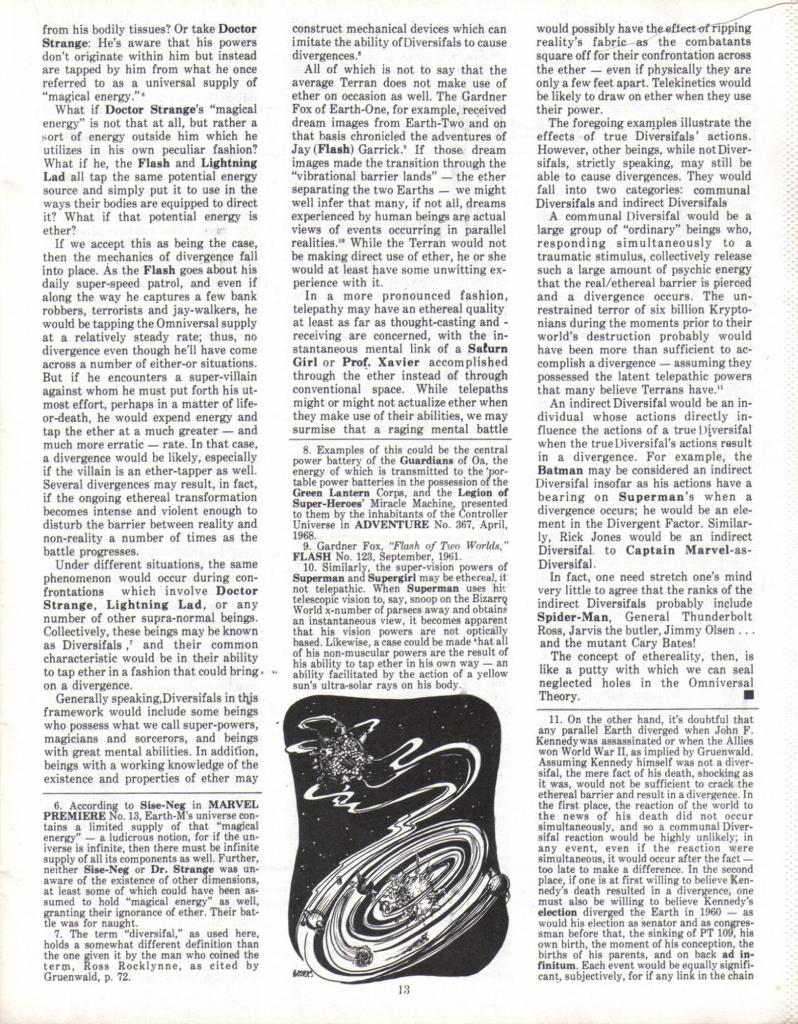

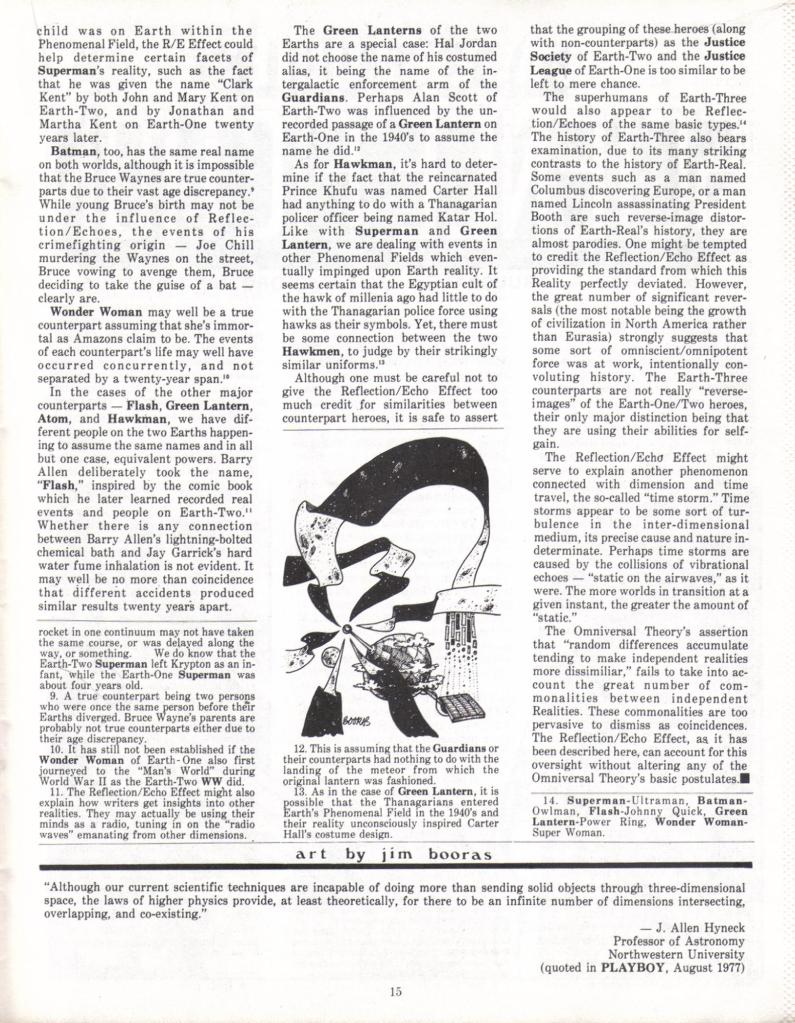

The next section was a set of smaller reviews of science fiction stories judged on the criteria of whether the realities they conjured and the rules that they operated under fit into Gruenwald’s definition of how this all was meant to work. This is an incredibly subjective point of view, so I don’t know that there’s a lot of merit in this exercise. But it’s interesting to see in practice.


We’ll look at more of OMNIVERSE #1 in the weeks to come.

Was finally able to score this and issue two a couple of years back after DECADES of searching. Still need Mark’s Treatise on Reality in Comic Literature, tho’
LikeLike
Was finally able to score this and issue two a couple of years back after DECADES of searching. Still need Mark’s Treatise on Reality in Comic Literature, tho’
LikeLike
Very cool cover…same concept used a million times since then.
LikeLike
After reading the second issue I wrote a letter pointing out that “doesn’t conform to Mark Gruenwald’s rules for time/dimensional travel” is not the same as “wrong.” While it never came out (no further issues) he wrote back and conceded the point.
I did enjoy #2. Bookmarking this for a close look at #1.
LikeLike
While his view may have shifted in later years, at least in 1979 when we were collaborating & hanging out a lot, I had a pretty lengthy chat with Mark on the subject where he revealed it wasn’t just fictional realities he believed existed parallel to fictional realities. His real underlying premise, which I don’t think he ever spelled out in Omniverse, was that Flash #123 got it right, & our stories, regardless of media, were all effectively “emanations” from parallel universes. This isn’t my interpretation; I pressed him on it & he was pretty specific.
LikeLiked by 1 person
I found Omniverse #1 and 2 in the back issue bins, years after the fact, and found them absolutely fascinating. While I think it’s generally a mistake for the comics themselves to dwell on this kind of minutiae, it’s a tremendously fun game for us obsessive fanboys. I have a bunch of half-finished articles in this vein on my hard drive, which I keep saying I should clean up and publish in some form (although I have no idea if there’s any audience for it — fandom has changed somewhat between the ’70s and now…).
LikeLike